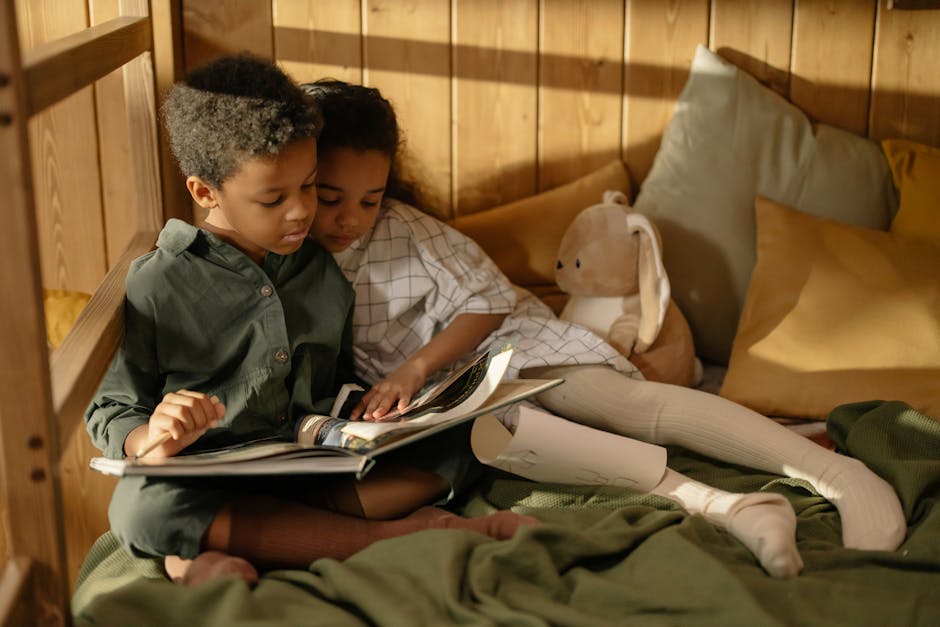Daily Routine To Fight Off Depression
(upbeat music) – [Narrator] Hey Psych2goers,
welcome back to another video. Thank you so much for
all the love and support that you’ve given us. Our mission is to make mental health and psychology more
accessible to everyone. Today, we’ve invited Emma
McAdam, a licensed marriage and family therapist shares
her insights on depression and some tips on how to cope with it. Her channel is therapy in a nutshell, you can check it out in the
link in the description below. With that said, let’s get started. History of depression
in my family and myself, just like physical health, you have to maintain it by
taking care of your body with exercise eating the right food, and going to the doctor
when you’re injured or ill.
With mental health, you also have to take daily action to be healthy. And when things are stressful, I have to take extra care
to manage my mental health. So for example, when I was in grad school or when I was pregnant or
postpartum, and right now when we as a global community
are fighting a pandemic, we all have to take a little extra care of our mental health. What I’m going to talk about today is more about maintaining mental health than it is about getting out of the
deepest pit of depression. When you’re deep in a depressive episode, it can be really hard to see any light. It feels like you’re
at the bottom of a pit and can’t imagine what it
feels like to be out of it. At that place, often, all
you can do is tiny steps and hopefully get some
help to get out of there.
So don’t allow yourself to
get overwhelmed by my routine. Just choose one little thing to start with and then take the next step when you can. Number one is the morning routine. So the first thing I do every day is get on my knees and pray. I express gratitude for
the day of my life and for the opportunity I have
to do good in the world. And that connection with God for me helps me feel loved and
purposeful throughout my day. If you’re not religious you could do some meditation
or a breathing exercise here. I try not to look at my phone
first thing in the morning because I wanna start
my day intentionally, the way I want it to be. If I open social media I’m letting others choose what I take in and that could be positive,
negative, stressful, uplifting, or critical.
And so I just choose to start
my day with some quiet time. I do a little reading and
then I write out my goals and priorities for the day. And right now with all the
news, that’s frightening. I choose to listen to the news
around lunchtime, once a day so that I don’t get
constantly stressed out and have time to process
it during my waking hours. And speaking of waking hours let’s talk about sleep for a minute. I have three kids, five and under.
So I usually wake up before
them to get some quiet time to set my intention for the day. My natural wake-up time
is around 5:00 a.m. I don’t usually set an
alarm, but to wake up I often go to bed between
9.00 to 10:00 p.m. I’m not fighting my natural biorhythms. I just listen to my body. And this is the schedule that
works best for me. Many people, might
have different sleep needs or different schedules. Sleep is super important
to managing depression.
There’s a massive correlation
between sleep problems and depression. Lack of sleep can cause depression and getting good sleep can
let your brain heal from depression. So I value my sleep. I have old friends who nicknamed me 905 because I often go to bed at that time. And I miss out on some fun for sure, but it’s what keeps me healthy. So it’s worth it for me. For each person, your
sleep needs are different but getting enough sleep can
make a big difference.
One study found that 87%
of people with depression who resolved their insomnia significantly decreased
their depression symptoms. Number two, get dressed and showered. So after waking up refreshed
and taking quiet time to pray, study, and set my intentions for the day, I make sure to get showered and dressed. I found that this can be
hard when you’re depressed, but being clean and dressed
helps me feel more energetic and gets rid of my excuses. I mean, if I have yesterday’s
makeup all over my face and I’m wearing PJs, it
makes it hard for me to want to go out and see friends or
be social or get things done. So just get dressed for the day. Then I take my multivitamins. And if I remember I take
my omega-3 supplements, and nutrition is an important
part of my routine as well. I try to eat a lot of plants
and not too much sugar or processed foods, but I’m not going to go into
that too much right now. Number three, exercise. The other essential part of my mental health
maintenance is exercise. There’s so much research
that proves that exercise is great for mental health.
It helps clear brain fog, and it helps reduce stress
chemicals in your brain. I feel like when I exercise,
it just works through a backlog of pent-up emotions and
I can feel my body relax. I think it also helps me deal
with anger and frustration. And I just like it. I know a lot of people
exercise in the morning, but for me back when I worked full-time, I used to always go climbing or for a hike or run after work.

That’s when I needed it the most. And it was hard for me to
get motivated in the morning but by afternoon, I was
looking forward to it. Now that I’m a full-time mom, I have to be more creative
in how I get my exercise in. I often just work out
in the yard, gardening, digging in the dirt, and
running around the yard with my wheelbarrow, or I’ll do some yoga on TV
or go for a walk with my kids or pull them behind my bike. Now that we’re stuck in our homes with the coronavirus pandemic, I’m doing more inside workouts. I like the seven-minute
workouts on my phone or The Fitness Marshall on YouTube.
Number four is nature time. This takes me back to another aspect of my mental health routine
that is important to me. Outside time. I need nature. I need to see the sky
and soak in some sun. I’m fortunate to live
in a beautiful place. And I take advantage of
that by getting outside. There is some research showing
that sunshine nature and being outside change our physiology. It slows our heart rate and decreases the stress
chemicals and stuff. But regardless of the research, I can just feel the difference for me. If you can’t get outside,
open your windows, and sit on your porch. Or if you can’t do any of that then you can spend some time looking at beautiful landscape
photography or a nature film.
Your brain can bring to mind the feelings of nature just by imagining it. Number five is my evening routine. My evening routine looks
like getting my kids to bed and then taking some
quiet time for myself. I usually take a hot bath and read a book or an archeology journal. I’m kind of nerdy, but that’s what I like. Even though I have very few hours to work on my passion project, these videos, I don’t usually work in the evenings, because it would just
stress me out a little and I need the downtime to stay healthy. So then before bed, I write in my journal, I often take the time
to write about my wins and accomplishments of the day
so that I can remember them because it’s my natural habit to dwell on my mistakes and shortcomings.
So I write about my wins
and then I pray a prayer of gratitude and talk with my
heavenly father about my day. Again, gratitude practice
is an essential habit of mental health, and it’s been shown to be an effective
treatment for depression. So you can pray about it like me, express gratitude as a family,
which we do at dinner time, or write about it, whatever works for you. And then I go to bed. I try not to spend too much
time looking at screens before bed, but if I do, I
choose some calming documentary or a mudlarking channel
like Nikola Whites. If you don’t know what mudlarking is, it’s just finding
historical bits of treasures on themes in London. Anyway, I find it relaxing. I encourage people not to be on TV because it’s just not
super great for your brain. But if you do choose a
short and calming show.
Lastly, other self-care. For me, that includes scheduling
and some time for my hobby. I have tons of hobbies, but
because I’m so busy with kids I don’t have
time to do most of them I make sure to carve
out about two hours a week to do at least one of them. Right now that’s metal detecting which is something fun
and relaxing for me. I put it on the calendar so
that I make sure it happens. I also take the Sabbath
off, no work, no housework. I don’t check my work email. I let my brain completely
focus on other things. Mostly my family, which
is also exhausting, but it’s a day that is
different from the others. And I make sure to have
social time as well. Having social interactions
is essential for mental health. Our brains are inherently social. We are social creatures. So right now this is going
to be an extra challenge with the Coronavirus. I’m taking the time to
call up old friends. I have some groups I’m
hanging out with on Zoom and when we’re not on lockdown I meet up with friends
to let the kids play or to go out to lunch or whatever.
So there you have it. My daily routine to
maintain mental health. I have a careful morning routine. I make sure to get enough sleep. I get dressed every day. I exercise and get some outside time, I carve out time to relax each
evening, practice gratitude, and acknowledge my successes of the day. And once a week, I make sure to get out and do something just
For me, stress, anxiety, and social isolation can
all contribute to depression but you can prevent depression
during stressful times like the pandemic and social distancing by using daily habits that
promote mental health.
Depression is treatable and there are some simple
things you can do every day to prevent depression and
stay mentally healthy. I hope you can find some things from this list that help you figure out a way to maintain your mental health. Today, this week, and
during the crazy pandemic that we’re going through. And remember, you’re braver than you know and stronger than you think. Thanks for watching and take care. If you enjoyed this video and would like to learn more
about therapy, mental health, and what you can do to improve depression, anxiety, or other mental illnesses, check out Emma’s channel,
Therapy, in a Nutshell, the link will be in the description.
Blue Heron Health News $49.⁰⁰ I thought my Parkinson’s diagnosis was a death sentence – I was so wrong! Instead of surrendering as the disease ruined my physical and mental health… I turned everything around to be healthier, happier, and more energetic than I was BEFORE my diagnosis!







